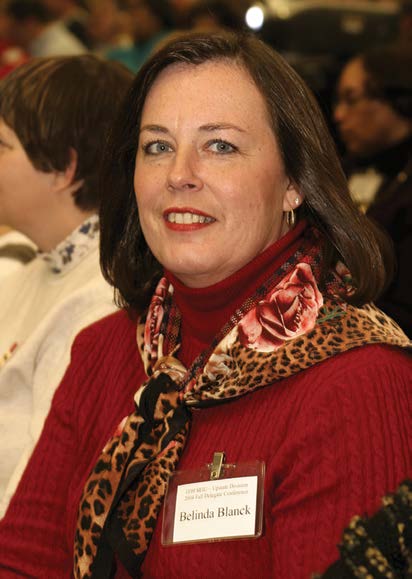Why I Do What I Do
February 25, 2016
Belinda Blanck, an RN at Crouse Hospital, in Syracuse, NY for four decades, has held some of nurses she works with when they were newborn babies.
Over 39 years at Crouse in maternal and fetal medicine, Blanck has helped tens of thousands of new babies into the world. She shepherds new parents through the anxiety of having babies with an illness or who are so premature that they can fit nearly into the palm of a hand. She also, of course, helps new mothers through the many challenges of pregnancy and childbirth.
Blanck, an 1199SEIU delegate at Crouse, says being an advocate comes naturally to her. She helps give workers a voice as a rank-and file member of the union’s Executive Council and makes sure Registered Nurses are heard as a member of SEIU’s Nurse Alliance.
“Even back in the day I felt that the women’s healthcare system needed fixing and that women were treated as second-class citizens especially when it comes to our health needs,” she says. “And when I was coming out of nursing school I was given an offer to work on this new unit of fetal and maternal medicine at Crouse. Dr. Richard Aubry started our unit and he was one of 32 physicians in the U.S. at the time in this field of perinatology. We have really built what we do here from the ground up.”
Crouse’s Kienzle Family Maternity Center where Blanck works, offers a broad array of care to mothers and babies; families from the world travel there for treatment.
“As a regional maternity hospital, one of our main goals is always to get mothers [who are having complications] in as early as possible and keep them pregnant,” says Blanck. “Things in our field have advanced over the years incredibly and we have seen viability rates go up, but first we have to get the moms into the hospital for care.”
The Maternity Center delivers about 4,000 babies a year, says Blanck. And every family has unique needs, especially when a baby is sick or very early.
“We have a very diverse patient population and so you have to envelop the entire family unit,” she says. “You have to make sure you’re communicating with everyone. People have many questions. You may not have the answers, so you have to find the answers. Sometimes I am like a care coordinator. I just treat people like they’re my own family. What do they need right now? What can I do to help them get through this?”
The work isn’t without its challenges; even an experienced nurse like Blanck isn’t immune to the realities of grief, family dysfunction and the incomprehensibility of death.
“We aren’t just sitting there rocking babies all day. We are seeing more and more babies with drug addiction again; babies affected by addiction to heroin and prescription pain medicine. It can be a lot some days. It wears on you,” she says. “But you have to remember that you’re a healthcare provider and that you have to continue the fight. And over the years I’ve been very blessed with co-workers who are so supportive in tough situations.”
Another blessing that she has witnessed over the years, says Blanck, is seeing her “preemies” grow up into strong, healthy adults. Several of them have been nurses at Crouse over the years or they have come back with their families to see her at the hospital.
“One of the babies that I helped deliver at 25 weeks was valedictorian of my son’s high school class,” she says “Or I’ll be out shopping in the supermarket and someone will tap me on the shoulder and say ‘You delivered my son and he was a pound. You should see him now at six feet tall!’ It’s really just an incredible feeling and makes it all worth it.”


